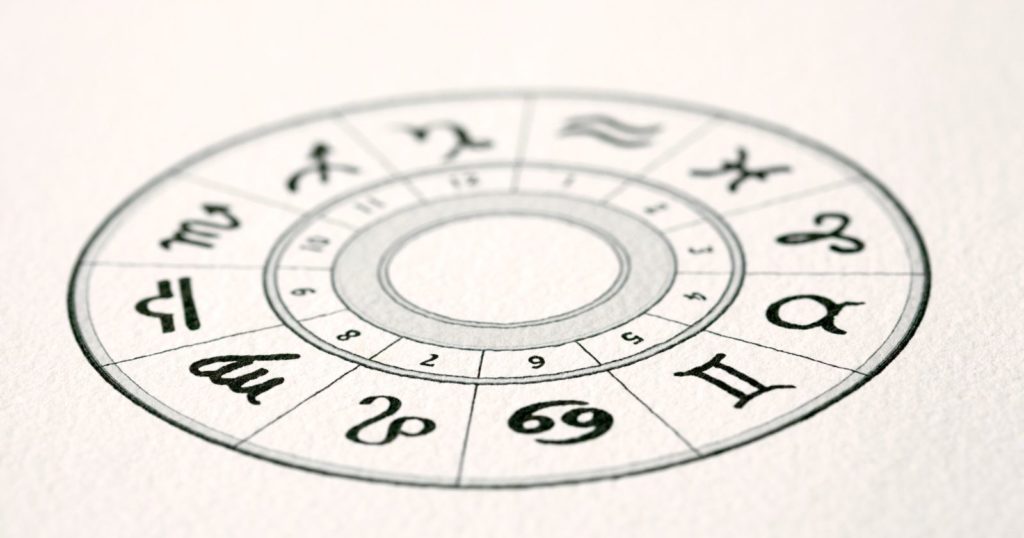Introduction to Zodiac Signs and Biblical Context
The Zodiac, an area of the sky through which the sun, moon, and planets journey, has been a source of fascination since time immemorial. Twelve signs, each representing a distinct period within a year, constitute this celestial belt. These Zodiac signs, as they’re commonly known, are believed by many to influence human characteristics and destiny—a belief central to the practice of astrology.
Christianity, on the other hand, with its monotheistic framework and scriptural guidance, presents a contrasting perspective. The question then arises—what does the Bible say about Zodiac signs? Let’s delve into a comprehensive examination of this intriguing intersection.
The Intricate World of Zodiac Signs
Zodiac signs, as part of astrological science, have enjoyed an interesting journey through history, with roots extending into ancient Babylonia. Each sign of the Zodiac, represented by a specific celestial symbol, is believed to exhibit a distinct set of traits affecting the personality and fate of individuals born under it. Astrologers argue that the position of the planets at the time of one’s birth can significantly influence their life path.
The Biblical Perspective
The Bible, a compendium of divine revelation for Christians, is silent on Zodiac signs in the way modern astrology understands them. However, it mentions celestial bodies numerous times, acknowledging their roles in marking seasons, days, and years (Genesis 1:14). Despite this, there’s a clear theological line that warns against attributing divine or predictive powers to these celestial bodies—a concept integral to the practice of astrology.
Interpreting Celestial Bodies in the Bible
It’s crucial to understand the Bible’s stance on the interpretation of celestial bodies. In biblical context, sun, moon, and stars are creations of God, and their primary function is to serve as markers for time and seasons, not as influencers of individual destinities. This understanding differs drastically from the astrological interpretation of Zodiac signs, which are believed to impact personal traits and life events.
Bible Verses and Their Interpretations
Given the Bible’s silent stance on the Zodiac, it’s important to examine its perspective on related themes. Let’s explore some critical verses.
“You shall not interpret omens or tell fortunes” (Leviticus 19:26)
Leviticus 19:26, a verse from the Old Testament, provides a clear prohibition against divination, a practice that attempts to foretell future events. This prohibition might extend to the reading of Zodiac signs, as astrology involves predicting personal futures based on celestial movements.
“Let now the astrologers stand up and save you, those who gaze at the stars, who at the new moons make known what shall come upon you” (Isaiah 47:13)
This verse from the book of Isaiah uses a tone of sarcasm towards astrologers, implying that they’re powerless to truly predict or affect future events. This further illustrates the Bible’s skepticism towards predictive astrological practices.
“And beware lest you raise your eyes to heaven, and when you see the sun and the moon and the stars, all the host of heaven, you be drawn away and bow down to them and serve them, things that the Lord your God has allotted to all the peoples under the whole heaven” (Deuteronomy 4:19)
Deuteronomy 4:19 warns against the worship or reverence of celestial bodies, a common practice in some ancient cultures. The verse suggests that it’s the Creator who should be worshipped, not His creations. This further supports the idea that attributing predictive or divine powers to the Zodiac signs contradicts biblical teachings.
Contemporary Christian Perspectives on Zodiac Signs
Different Christian denominations have varying perspectives on Zodiac signs and astrology. These views range from stringent rejection to conditional acceptance, revealing the complexity of the issue.
The Conservative Stance
Many conservative Christians firmly oppose astrology and the use of Zodiac signs, viewing them as idolatrous practices that attribute divine qualities to created beings. They argue that belief in astrology amounts to devaluing God’s sovereign power over the universe.
The Progressive Outlook
On the other hand, some progressive Christians might take a more lenient view. They often suggest that Zodiac signs and astrology could be considered as part of God’s creation, offering insights into His mysterious ways. However, they caution against using astrology to predict future events or as a substitute for God’s guidance.
Theological Dilemmas and Interpretations
As with many religious debates, the question of Zodiac signs involves complex theological dilemmas. It’s essential to remember that while the Bible does not directly mention Zodiac signs, its teachings are often interpreted to warn against ascribing divine qualities or predictive abilities to these celestial symbols.
Examining Historical Christian Interactions with Astrology
It’s important to recognize that, while the Bible itself doesn’t reference Zodiac signs in the way we understand them today, throughout history Christians have interacted with astrological concepts in various ways.
Early Christian Thinkers and Astrology
Early Christian thinkers and theologians such as St. Augustine and Origen rejected astrology and the power of Zodiac signs over human lives. St. Augustine, in his work “The City of God,” dismantled astrology’s principles, arguing that they limited God’s sovereignty and human free will.
Middle Ages and Renaissance Period
In the Middle Ages and the Renaissance period, Christian attitudes toward astrology were more complex. Some Christian monks and scholars studied astrology extensively, often reconciling it with Christian doctrine by viewing the stars as tools God used to communicate His divine plan. However, they maintained that only God, not the stars, had control over human destinies.
Modern-Day Christianity and Astrology
Today, mainstream Christianity maintains a cautious distance from astrology, emphasizing that faith in God should guide one’s life, not astrological signs or predictions. Yet, there are varying interpretations and personal beliefs, creating a mosaic of opinions within the faith community.
Important Distinctions Between Zodiac Signs and Biblical Teachings
The Bible, with its rich tapestry of divine wisdom, teaches believers about God’s sovereignty and the value of faith. Here’s how it differentiates from the Zodiac’s guiding principles.
Sovereignty of God vs. Influence of Stars
The Bible repeatedly emphasizes the sovereignty of God over all of His creation (Psalm 115:3). According to biblical teachings, God, in His divine wisdom, orchestrates the affairs of the universe. This contrasts with the astrological belief that the positions and movements of celestial bodies directly influence individual lives and destinies.
Faith and Free Will vs. Predetermined Fate
Christianity emphasizes the concept of free will and personal responsibility. This belief aligns with the biblical teachings on faith and repentance, underscoring that humans have the ability to shape their destinies through their actions and decisions. In contrast, the interpretation of Zodiac signs often points towards a more deterministic view of life, with one’s fate supposedly dictated by the alignment of celestial bodies at their birth.
The Personal Relationship with God vs. Celestial Intermediaries
Christianity emphasizes a direct, personal relationship with God. Believers are encouraged to seek guidance through prayer and the study of Scriptures, rather than through intermediaries like stars or planets. Astrology, on the other hand, proposes that insight into one’s life can be gained through understanding the position and influence of celestial bodies.
Reflecting on the Intersection of Zodiac Signs and Christian Belief
As we’ve seen, the Bible does not directly reference Zodiac signs, and Christian perspectives on astrology vary. At the intersection of these belief systems, we find a multitude of nuanced views and interpretations.
An Avenue for Wonder, Not Worship
While the Bible cautions against viewing celestial bodies as divine or predictive, the grandeur of the cosmos can serve to inspire awe and wonder. The marvel of the universe and its celestial bodies can serve as a reminder of God’s power and creativity, leading us towards appreciation, not worship or divination.
Striking a Balance Between Curiosity and Conviction
Christians who find themselves intrigued by the Zodiac can navigate this interest by balancing their curiosity with their conviction. While astrology can offer an interesting lens to observe patterns in human behavior, it should not overshadow the fundamental Christian belief in God’s sovereignty and guidance.
Respecting Diverse Interpretations within Christianity
As with any faith-based discussion, it’s essential to respect varying interpretations within the Christian community. While the Bible’s teachings do not support the predictive or divine power of Zodiac signs, some Christians may see elements of astrological thinking as part of God’s mysterious universe.
Navigating the Conversation
The intersection of Christianity and astrology presents a compelling dialogue. It’s essential to approach this conversation with an open mind and a respectful attitude towards differing beliefs.
Encouraging Open Dialogue
Whether you’re a Christian exploring astrology, an astrologer interested in Christianity, or someone fascinated by the intersection of these belief systems, encourage dialogue. Open, respectful discussions can lead to a deeper understanding of our universe and our place within it.
Respecting Personal Beliefs
Every individual’s spiritual journey is unique. It’s crucial to respect personal beliefs, even if they differ from mainstream interpretations. At the same time, it’s important to remain grounded in the foundational tenets of one’s faith.
Seeking Spiritual Guidance
For Christians grappling with questions about Zodiac signs and astrology, seeking guidance from a trusted spiritual leader can be helpful. They can provide insight and context, helping navigate these complex topics within the framework of Christian belief.
In conclusion, while the Bible does not directly mention Zodiac signs, its teachings provide clear guidance on the interaction of faith, the cosmos, and human life. The exploration of these celestial symbols within Christianity presents a fascinating discourse, reminding us of the endless wonder of our universe and the mystery of God’s grand design.
The Bible’s Allusions to Celestial Bodies
While the Bible doesn’t reference Zodiac signs explicitly, it contains numerous allusions to celestial bodies, which often carry symbolic meanings. Understanding these references can enrich our exploration of the Bible’s stance on astrology and Zodiac signs.
Creation and Celestial Bodies
In Genesis, the creation narrative describes God setting the sun, moon, and stars in the sky. These celestial bodies serve practical functions such as giving light and helping to determine times and seasons (Genesis 1:14-18). Importantly, the text makes it clear that these bodies are creations, not divine beings to be worshipped or divined from.
The Stars in Joseph’s Dream
In one notable biblical event, Joseph dreams of the sun, moon, and eleven stars bowing down to him (Genesis 37:9). This dream, laden with symbolic meaning, foreshadows his future prominence. But the power resides not in the stars themselves, but in God, who gives Joseph the interpretation and brings the events to pass.
The Star of Bethlehem
The Star of Bethlehem, as told in the gospel of Matthew, guided the Magi to the birthplace of Jesus (Matthew 2:1-2). It’s a unique occurrence where a celestial body played a significant role in the biblical narrative. Still, the star is not presented as having power in itself but acts as a sign pointing to Jesus.
Zodiac Signs as Cultural Phenomenon
Zodiac signs are an influential cultural phenomenon, touching on areas such as personality typing and horoscope predictions. They often spark curiosity and interest, even among Christians. However, from a Christian perspective, the guiding principles offered by Zodiac signs should be handled with discernment.
Pop Culture and Zodiac Signs
Zodiac signs often feature in pop culture, influencing the way people perceive personality traits and human interactions. As Christians, it’s crucial to interact with these cultural phenomena thoughtfully, recognizing the value of such insights but being cautious not to attribute them divine or predictive power.
Zodiac Signs and Personal Identity
For some, Zodiac signs may provide a way to understand personal traits and inclinations. However, from a Christian perspective, our identity is rooted not in the stars, but in our relationship with God and our intrinsic value as His creation.
Horoscopes and Future Predictions
Horoscopes based on Zodiac signs claim to predict future events or offer daily guidance. For Christians, the Bible is the ultimate guide, and God’s wisdom and sovereign control over the future are foundational beliefs.
Final Reflections and Conclusion
The exploration of Zodiac signs in the context of Christianity opens a vibrant dialogue, illuminating the fascinating intersection of faith, cosmos, and human destiny.
The Power of Discernment
At the heart of this exploration lies the power of discernment. Christians are called to discern truth from falsehood, wisdom from folly. When engaging with the concept of Zodiac signs, this discernment guides us in understanding where the insights offered by astrology align with biblical wisdom and where they diverge.
Reverence for the Creator
The Bible encourages a reverence for the Creator above all else. The stars, planets, and galaxies—while captivating and awe-inspiring—serve to magnify the glory of God. They draw our attention to the Creator, not to themselves. Any attempt to attribute divine power or predictive ability to these celestial bodies moves away from this key Christian belief.
The Final Word
In the final analysis, while Zodiac signs and astrology offer an intriguing perspective on the cosmos and human life, they do not align entirely with biblical teachings. As Christians, our ultimate guide is the Bible, and our faith is placed in a God who guides and directs our paths, independent of celestial influences.
In conclusion, the Bible, while silent on the Zodiac, speaks volumes about the relationship between God, the cosmos, and humanity. As we explore the celestial canvas with curiosity and wonder, let us remember that the ultimate guide to our life’s journey is the divine wisdom revealed in the Scripture. This understanding helps us navigate the cosmos not as a labyrinth of cryptic signs and symbols but as an awe-inspiring testament to the boundless creativity of the God we worship.
Further Reading:
- The Real Astrology by John Frawley: This book delves into traditional astrology and offers an interesting perspective on the subject.
- Christian Astrology by William Lilly: While the title may seem contradictory, this book provides historical insight into how Christians in the past have interacted with astrology.
- The Bible Among the Myths by John N. Oswalt: A valuable resource for understanding the Bible’s position among various ancient cultural beliefs, including astrology.




